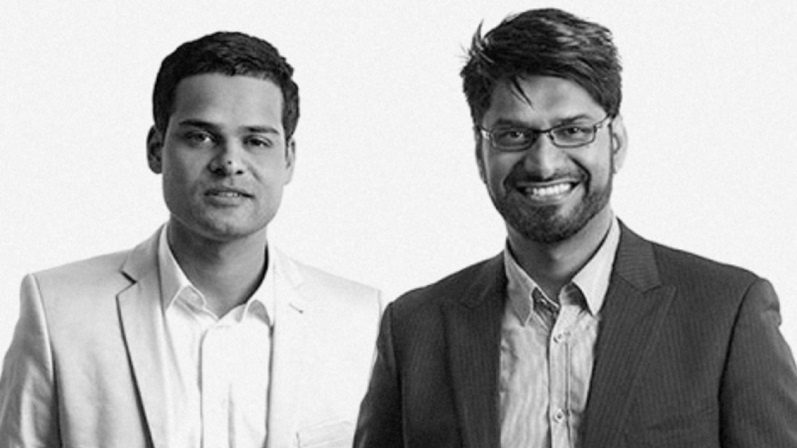The clock is ticking for Windows 10 users. With Microsoft’s official End of Support (EOS) deadline looming in October 2025, South Africans are being…
Meet EMGuidance, the SA finalist for Seedstars World competition

A Cape Town startup that developed an app to help doctors to source more reliable information on treatment guidelines and medication dosages among other things, has been chosen to represent South Africa at the next Seedstars World competition.
EMGuidance was selected last Thursday by Seedstars World from several startups that competed at the South Africa final held in Johannesburg.
Read more: EMGuidance is set to represent South Africa at the Seedstars World finals
The startup will now compete against more than 75 startups in Switzerland in April next year for the top prize of $500 000 and will also attend an African Seedstars event in Maputo in November.
With the app, which EMGuidance launched in June last year, doctors will no longer have to turn to Googling, consulting the Department of Health’s website or resorting to trawling for US or UK protocols to find out things such as when to use antibiotics when treating a child with tonsillitis, as the indicators can differ from one region to the next.
The startup’s CEO Yaseen Khan (pictured above left) is a former doctor who worked in various Cape Town hospitals, while co-founder Mohammed Dalwai (pictured above, right) worked formerly for Doctors Without Borders in Afghanistan and Syria.
Their app allows doctors and medical professionals to source treatment protocols for chronic conditions and information on medication (things like dosages and what drugs are available and registered by the respective local medical council).
It also contains a directory to help medical users coordinate logistics (like wheelchairs or emergency services) and care for patients including those doctors who are on call.
The idea for the app arose from a non-profit that the duo founded in 2012, called the Open Medicine Project South Africa in 2012, where they built apps for the Department of Health and a number of other institutions to distribute guidelines to medical professionals.
While the app is free for medical professionals, the company generates revenue from pharmaceutical companies who pay to carry featured content
While the app is free for registered medical professionals to access, the company generates revenue from pharmaceutical companies. These firms pay a monthly subscription to list their medication as featured content (including videos) in the app. Such information includes the use of their products with medical schemes.
The pharmaceutical companies’ paid-for featured content is carried alongside free basic information that Khan and his team source from universities, the health department and medical associations.
Khan however was at pains to stress that those doctors that subscribe to the app are able to opt in on whether to be contacted by pharmaceutical company sales people.
In addition he said sponsored content is very clearly marked as such on the app, while the base free information is “fully comprehensive” on things such as information on dosages and all the product names that are available in the market. However the app allows paying pharmaceutical companies to present supplementary information.
“We’ve always been strongly premised on open access to information so the idea of doctors paying for it (access to the app) didn’t enter our minds,” he said.
While at times there may be friction between pharmaceutical companies looking to push their products, and doctors seeking to provide unbiased assistance to patients, Khan believes that the pharmaceutical industry has very useful information it can provide to medical professionals, while doctors in turn are able to provide feedback on side-effects and usage of medication.
However he stressed that the startup would provide such an opportunity to both parties in a transparent way.
In addition Khan says the data that the app generates from doctors requesting informationcan also play an important additional role in providing trends or serving as an early-warning system to the health department on epidemics detected in certain regions.
Currently over 5 500 medical professionals have signed up to the app, including 2 500 doctors (about 10% of all those registered in South Africa, according to Khan).
In addition the company sources content from over 20 content providers, while seven pharmaceutical companies have signed on as clients.
The app is also available in eight other African countries, including Namibia and Kenya. Khan said in much of these countries the app contains only basic information at present, with pharmaceutical companies still to add content.
With the information only accessible via mobile app, EMGuidance aims to soon launch a web platform which is specifically built around a powerful search engine.
In addition, the company is also preparing to offer electronic prescriptions for medication.
EMGuidance, which was registered in March last year, currently has a team of 12 employees (some of whom are contractors) who work from the startup’s Cape Town office. They include designers, developers, marketers, pharmacists and doctors.
Turning to the Seedstars South African final, Khan said the jury — which consisted of SA SME Fund CEO Quinton Dicks, SystemicLogic CEO Audrey Mothupi and Standard Bank Incubator head Jayshree Naidoo among others — were particularly pleased about the number of pharmaceutical clients the company had signed up. The judges he said were also pleased that the company is “moving at an incredible pace”.
While EMGuidance may have come out tops, Khan says he and Mohammed applied at the last minute, when he received an email about the competition a week before the Cape Town pitching session was to take place last month.
Their timing, it seems, couldn’t have been better.
Featured image: (left to right) EMGuidance founders Yaseen Khan and Mohammed Dalwa (Supplied)

